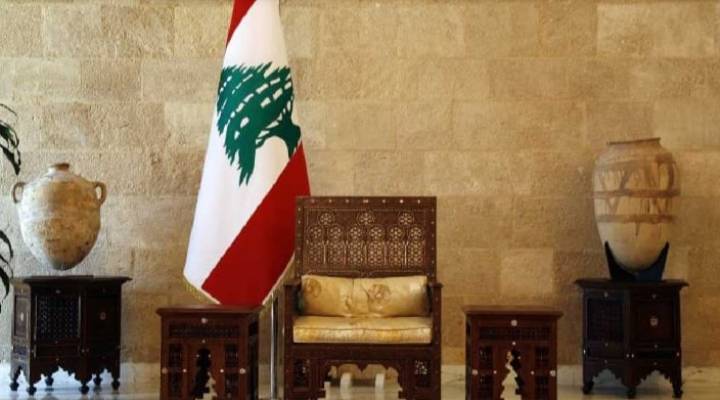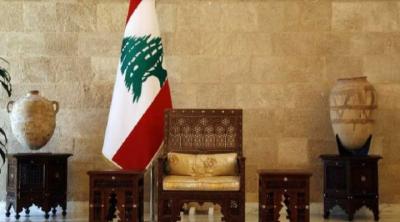Stagnation dominates the presidential file in Lebanon. Each team continues to position itself behind its camp. The situation remains unchanged, with no additions or subtractions. The opposition backs the nomination of Michel Moawad, while the Shiite duo has not announced its withdrawal from supporting Suleiman Franjieh. In the middle of this, the country suffers under the weight of obstruction at all levels. For a long time, there was a clear bet on the five-nation Paris meeting. The meeting took place and concluded without any executive mechanisms or even a recommendation or final statement. The delegations of the diplomats from the countries that met continue their rounds to gauge the presidential atmosphere. Various news and analyses circulate regarding the fate of their movement. Some claim that the ambassadors were informed by Speaker of Parliament Nabih Berri about support for Franjieh's nomination and his request to return with a clear response to this nomination. Others say that the meeting itself ended without anything that can be considered a perspective for breaking the presidential deadlock. The reliance has shifted to a new phase contingent on an upcoming meeting of the five countries at the foreign minister level, with no date set yet.
On the external front, some express optimism about what the coming months may bring in terms of moving the stagnation in the presidential file, linked to expected regional and international developments. However, betting on such developments is considered unrealistic as they progress very slowly, and until they mature, the Lebanese presidency sits in a basket of international neglect and in a local bottleneck. Amidst this ambiguity, it is still unclear when the head of the "Marada Movement" will officially announce his candidacy and when "Hezbollah" will declare its support. Sources from the duo say that the announcement depends on favorable conditions, and currently, there are no favorable circumstances for that. Franjieh intended to announce his candidacy about two weeks ago, but he has held back in agreement with the duo because the conditions for candidacy have not matured externally or internally, and the five-nation Paris meeting stalled the step due to conflicting news surrounding it.
From the outset, the Paris quintet meeting was not relied upon by the duo. A meeting without the presence of all concerned countries indicates a flaw in the treatment, specifically regarding the absence of Iran, though the ambassadors of the five nations included "Hezbollah" on their rounds. If the Western approach were serious, they would not have excluded Iran, according to political sources. It is difficult for "Hezbollah," unlike Speaker Nabih Berri, to announce Franjieh's candidacy. He announces his support when the concerned party declares his candidacy; otherwise, he would face a problem with Christians, including the "Free Patriotic Movement," which views such a step as undermining the principle of national partnership.
Close associates report that the Shiite duo does not endorse Franjieh's nomination on the basis of "him or no one." Their goal is a presidential candidate they can trust, which applies to ally Franjieh. If there is no prospect for his candidacy, he can withdraw at the right time, should he announce his candidacy. Currently, there is no candidate proposed on the duo's agenda except for Franjieh. As for the candidacy of the army commander, it is non-negotiable, not due to factors related to Army Commander Joseph Aoun himself, but because the duo refuses to repeat the experiment of a president coming from military leadership.
The duo, according to its sources, confirms that the presidential elections in Lebanon have not yet matured either internally or externally. They say that relying on agreements related to the situation in Yemen and the Saudi-Iranian and Saudi-Syrian relations requires time. They continue: As long as the five countries act as if they are the sole decision-makers, the bet on near solutions is unlikely.
When the Secretary-General of "Hezbollah," Sayyed Hassan Nasrallah, spoke in his last speech about chaos in Lebanon and threatened to spread it across the region, he based his words on available information that the aim is to create a climate of chaos to impose a presidential candidate from abroad, an endeavor rejected without a settlement in which everyone participates to ensure genuine partnership between the presidency of the republic and the government.
Despite all the "chaos" and the difficult labor Lebanon is experiencing, nothing indicates a near resolution, neither presidentially nor politically. The next president has become just a name, as the ongoing efforts focus on a comprehensive settlement that includes a formula for a presidential-governmental composition that encompasses comprehensive appointments. However, the conditions for such a settlement have not yet matured. Discussions regarding it have begun behind the scenes, which is certain, but white smoke in Lebanon will not be seen in the near future.




